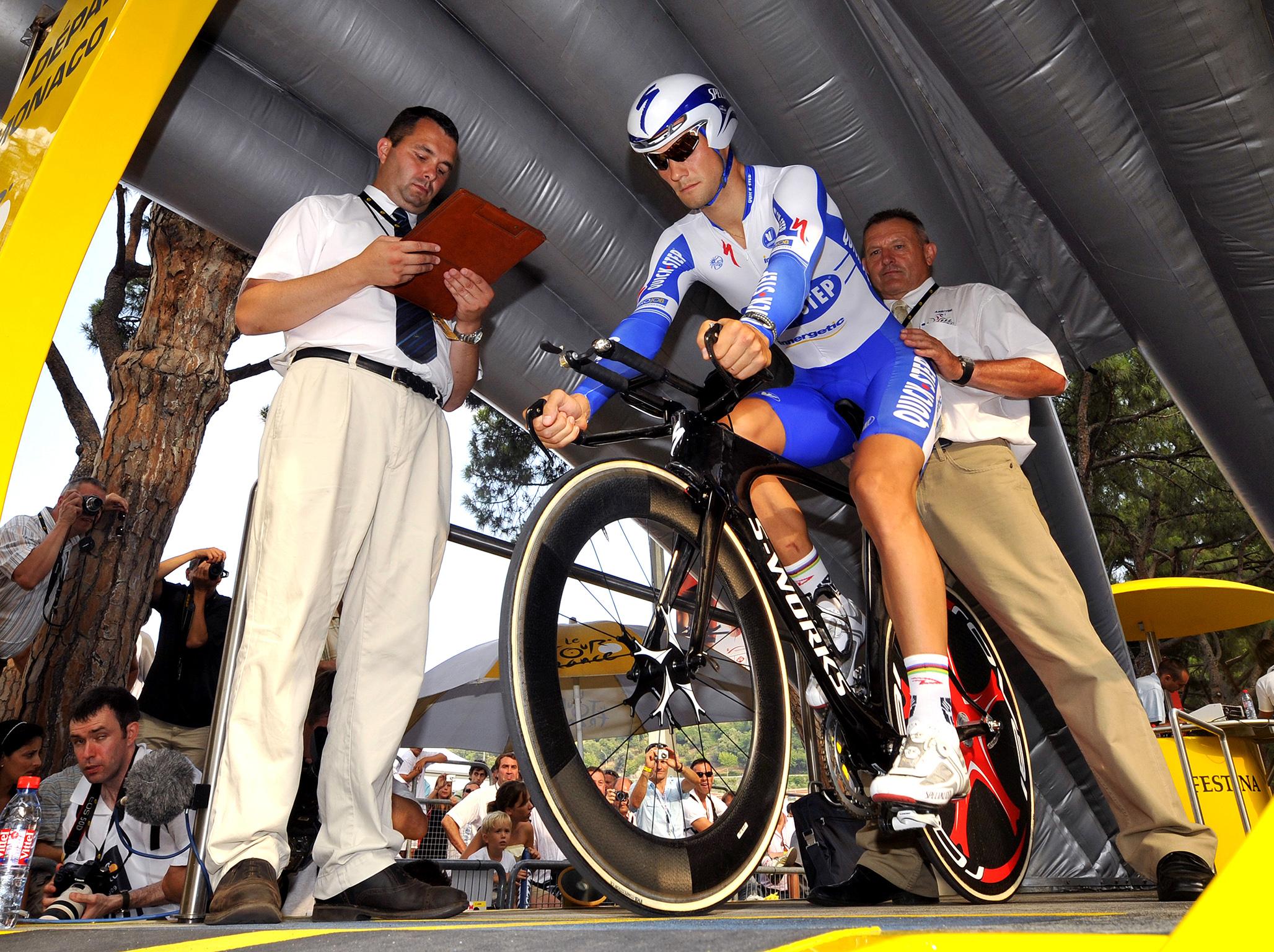What Tom Boonen’s cocaine case says about the Tour de France’s plan to block Chris Froome from racing
Boonen’s story resonates at a time when Amaury Sport Organisation, the Tour de France organisers, are considering blocking Chris Froome from riding

Around lunch time on 3 July 2009, in a hot and half-empty courtroom in Paris, a judge ruled that Tom Boonen could race in the Tour de France.
He had tested positive for cocaine out of competition three times, which was not actually a violation of cycling’s anti-doping code, but race organisers had moved to ban the Belgian rider fearing the Tour’s image would be tarnished – an irony somehow lost on everyone involved. But the French sport arbitration chamber overruled, and the next day a relieved Boonen joined the race’s Grand Depart in Monaco.
Boonen’s story resonates at a time when Amaury Sport Organisation (ASO), the Tour de France organisers, are considering blocking Chris Froome from riding in 2018. Froome tested for twice the permitted limit of the asthma drug Salbutamol during his 2017 Vuelta a Espana triumph, and could face a ban from the sport when his case is eventually resolved.
The Tour has decided that while Froome’s case rumbles on, it does not want him racing across the Normandy cobbles and over the French Alps, inevitably wearing the famous yellow jersey, with a potential anti-doping violation hanging over him.
But like Boonen, there is no obligation on any of the stakeholders – UCI, Team Sky, or the World Anti-Doping Agency – to provisionally suspend Froome. He is free to race, and everything we have seen so far – his return to action, his protestations of innocence, his legal team’s snail-esque progress – suggests he will be at the Grand Depart in Noirmoutier on 7 July.
Can the ASO really block him from racing? Each grand tour has a clause allowing organisers to turn a rider away if there is a danger of damaging the race’s image, but it is rarely implemented.
The Giro d’Italia has already made clear it will allow Froome to race when the Italian tour begins in Jerusalem in May – it’s first ever start outside Europe – but that is probably because the Israeli government has already signed a contract agreeing to pay Froome a substantial figure, reported to be €2m, for participating.
The Tour de France is not bound in the same way. But if the ASO was to block Froome’s participation, and Team Sky and Froome were to challenge that move, it could conceivably end up in a hot, half-empty courtroom. Precedence carries plenty of sway in such cases, and the example of Boonen shows why it may not be as simple as it sounds for the Tour de France to reject its embattled champion.
Subscribe to Independent Premium to bookmark this article
Want to bookmark your favourite articles and stories to read or reference later? Start your Independent Premium subscription today.

Join our commenting forum
Join thought-provoking conversations, follow other Independent readers and see their replies